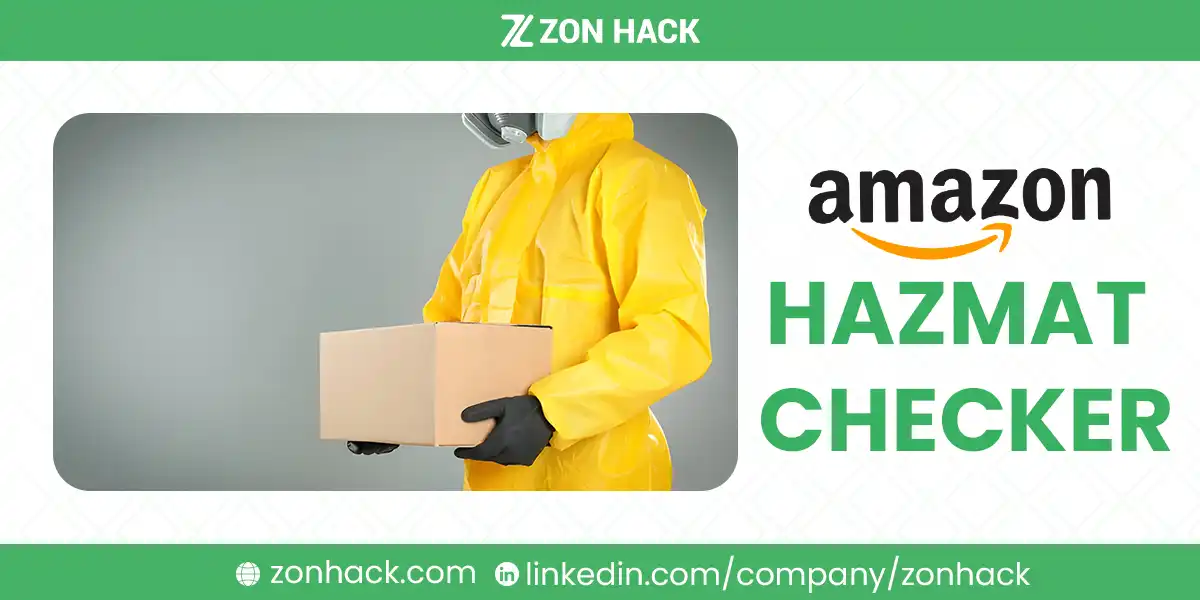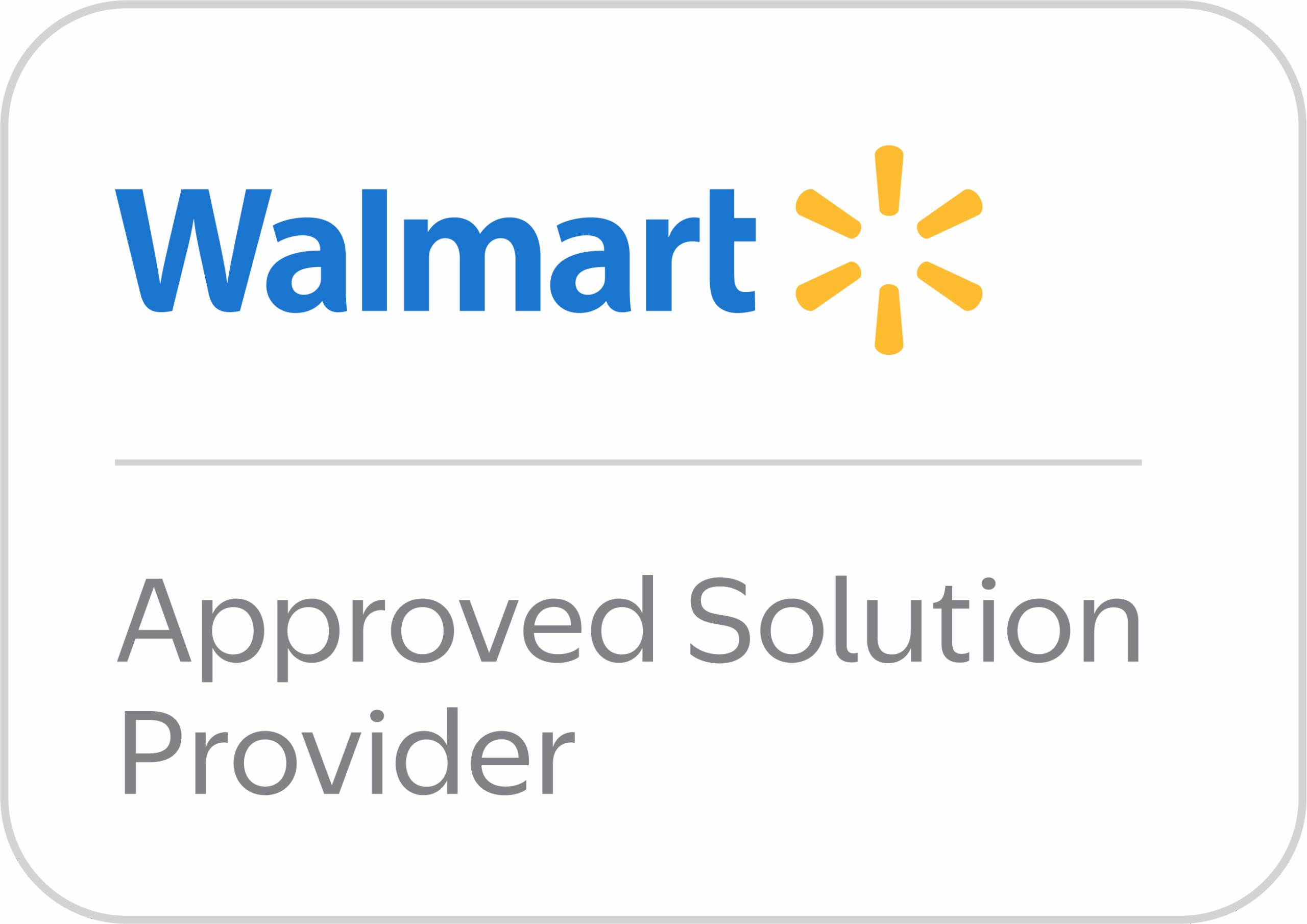Selling on Amazon can be highly profitable, but it also comes with certain compliance rules, especially for products that may be classified as hazardous materials (Hazmat). These products, also referred to as dangerous goods (DG), require special handling and approval before they can be sold or shipped through Amazon’s fulfillment network. In this guide, we’ll explore how to check if your product is classified as Hazmat, why it’s important, and what steps you should take if your product falls into this category.
Before selling on Amazon, it’s crucial to check whether your product is classified as Hazmat. You can do this through Amazon Seller Central’s Dangerous Goods classification tool or by using third-party tools like Seller Assistant and AMZScout. Ensuring compliance prevents penalties, shipping delays, and possible suspension of your seller account.
What is a Hazmat Product on Amazon?
Hazmat products, or hazardous materials, are items that can pose risks during transportation due to their chemical nature. These risks may include fire hazards, explosions, or environmental damage. Amazon, like most shipping companies, strictly regulates these products to ensure safe delivery. Common Hazmat products include batteries, flammable liquids, aerosols, and chemicals found in cleaning agents or beauty products.
On Amazon, products identified as Hazmat cannot be stored or shipped without special approval due to their potential to harm consumers, handlers, or the environment.
Why Do You Need to Check a Product’s Hazmat Status Before Selling on Amazon?
It’s essential to verify whether a product is classified as Hazmat before listing it on Amazon for several reasons. First, Amazon has strict regulations on handling and shipping these products. If you attempt to sell a Hazmat item without approval, it could lead to delayed shipments, fines, or even the removal of your listings. Furthermore, Amazon might dispose of the inventory you sent to their fulfillment centers if it doesn’t meet compliance standards.
Also, if you’re part of the Fulfillment by Amazon (FBA) program, Amazon stores, packs, and ships products on your behalf. Not all warehouses are equipped to handle Hazmat products, so getting approval is vital for smooth fulfillment.
How Do You Check a Product’s Hazmat Status on Amazon?
There are several methods to check whether your product is considered Hazmat on Amazon, and this step is crucial for ensuring compliance with Amazon’s policies.
1. Checking Hazmat Status Using Seller Central
Amazon provides a built-in feature within Seller Central to check the Hazmat status of a product. Here’s how you can do it:
- Log into your Amazon Seller Central account.
- Navigate to the Inventory section, then select Manage Dangerous Goods Classification.
- Enter your product’s ASIN (Amazon Standard Identification Number) or product title into the search bar.
- The system will display whether the product is classified as a dangerous good or not.
This process helps you determine if the product requires special handling or approval before selling.
2. Using Third-Party Tools to Check Hazmat Status
Alternatively, you can use third-party tools that automate this process and provide additional insights. Popular options include Seller Assistant and AMZScout. These tools automatically check Hazmat status when you view product listings on Amazon. They can also alert you to potential intellectual property risks, product restrictions, and pricing strategies, making them valuable for comprehensive product research.
What Should You Do If Your Product is Marked as Hazmat?
If your product is classified as Hazmat, don’t panic. There are several steps you can take to address this.
1. Apply for Hazmat Approval
You’ll need to apply for approval through Amazon’s FBA Dangerous Goods Program if you plan to store and ship Hazmat products via FBA. This process involves submitting documents such as the Safety Data Sheet (SDS) for your product, which outlines the chemical composition and any hazards associated with it.
The approval process usually takes two business days, and you’ll receive a response indicating whether your product can be stored in Amazon’s hazardous goods warehouses or not.
2. Ensure Compliance with Packaging and Labeling
Once your product is approved as Hazmat, you must comply with strict packaging and labeling regulations. This may include using specialized containers or adding hazard labels to the packaging to indicate flammability or toxicity.
Failing to follow these requirements can lead to shipping delays, damage to your seller reputation, and potential fines.
What Happens if You Send an Unapproved Hazmat Product?
If you ship a product classified as Hazmat without proper approval, Amazon’s fulfillment centers will quarantine the product and notify you. Sellers typically have a 14-day window to submit the required documentation, such as the SDS. If you fail to provide this within the timeframe, Amazon may dispose of or return the inventory at your expense.
Shipping unapproved Hazmat items not only delays customer deliveries but also risks suspension of your seller account. Therefore, it’s crucial to ensure all Hazmat products are properly approved before sending them to Amazon.
What is Amazon’s FBA Dangerous Goods Program?
The FBA Dangerous Goods Program is a specialized service offered by Amazon to handle hazardous materials that are approved for sale on the platform. Sellers who want to store and ship Hazmat products through Amazon’s fulfillment network must apply to this program.
1. Who Can Apply for the Program?
Any seller with a professional seller account can apply, but they must provide documentation proving the safe handling and transport of their goods. Once accepted, sellers can store Hazmat items in designated Hazmat fulfillment centers.
2. Fees and Storage Limits
Amazon charges higher fulfillment fees for Hazmat items due to the additional safety measures required. The program also comes with storage limitations, so it’s important to monitor the amount of Hazmat inventory you send to Amazon.
Best Practices for Managing Hazmat Products on Amazon
To avoid complications when selling Hazmat products on Amazon, there are several best practices you should follow:
- Regularly Check Hazmat Status: Always check your product’s status using Seller Central or third-party tools before purchasing large quantities or sending inventory to FBA.
- Keep Safety Data Sheets Up to Date: Ensure that your SDS is current and matches the product specifications. An outdated SDS can lead to compliance issues.
- Stay Updated on Amazon’s Policies: Amazon’s rules around Hazmat products can change, so it’s crucial to stay informed about any updates or revisions.
- Use Specialized Packaging: Ensure your product complies with all packaging requirements for hazardous goods. Incorrect packaging can result in fines or product returns.
FAQs
How do I check if my product is restricted on Amazon?
You can check for restrictions using Seller Central or third-party tools like Seller Assistant. Just enter the ASIN or product title, and the system will show if the product is restricted due to Hazmat status.
What happens if I sell a Hazmat product without approval?
Amazon may delay or cancel shipments of your product. They can also suspend your seller account and dispose of your inventory if you don’t provide the necessary documentation in time.
Can I sell Hazmat products through FBM?
Yes, you can fulfill Hazmat products through Fulfillment by Merchant (FBM), but you must still comply with all safety regulations and packaging requirements.
How long does it take to get Hazmat approval from Amazon?
Approval typically takes two business days, assuming you provide all required documentation such as the SDS.
Summary
Ensuring that your products comply with Amazon’s Hazmat regulations is critical for maintaining your seller account and avoiding costly delays. By regularly checking Hazmat status using Seller Central or tools like Seller Assistant, you can stay ahead of any potential compliance issues and keep your sales flowing smoothly.




